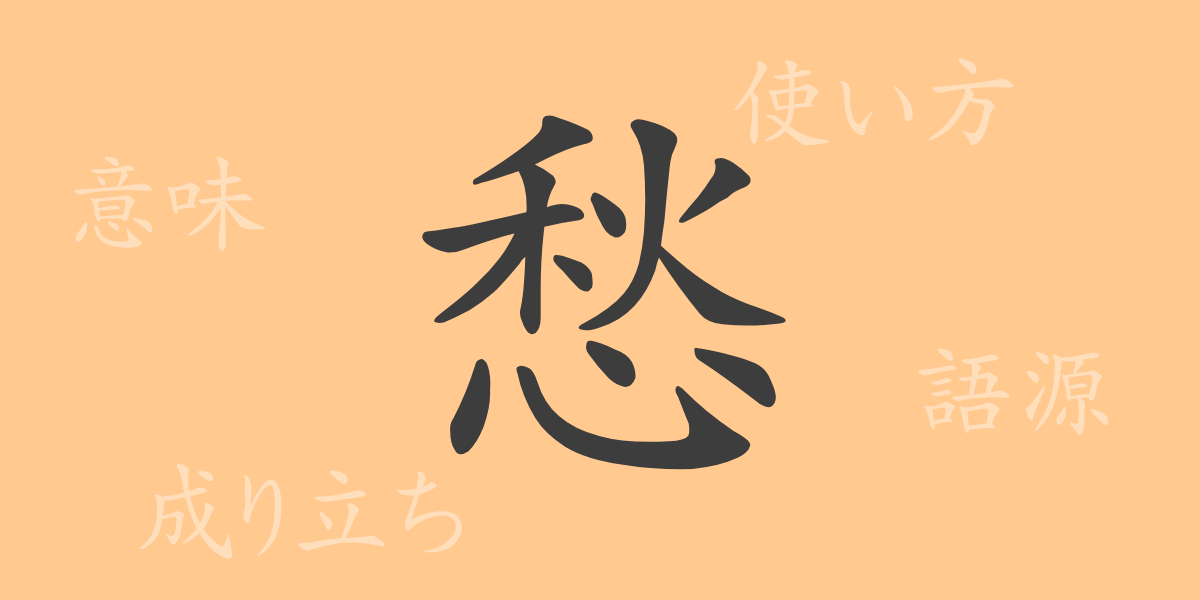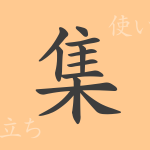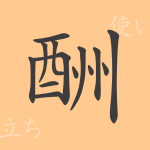The journey into the depths of Japanese character culture begins with understanding the history and meaning embedded in each kanji character. This time, we focus on the commonly used kanji “愁(しゅう, shuu)”. Let’s delve into its origins and modern usage. The unique nuance of this character is essential for expressing the delicacy of Japanese culture. Join us as we explore the world of “愁(しゅう, shuu)” and appreciate its depth together.
Origin of 愁(しゅう, shuu) (Etymology)
The kanji “愁(しゅう, shuu)” is composed of the heart radical (忄) symbolizing emotion, and the character for autumn (秋, しゅう, shuu). In ancient China, autumn was a season of harvest but also a time when all things began to decline, evoking a sense of melancholy in people’s hearts. Thus, “愁(しゅう, shuu)” came to represent the sentimental feelings and inner sadness felt during seasonal transitions.
Meaning and Usage of 愁(しゅう, shuu)
“愁(しゅう, shuu)” refers to emotions such as sorrow, worry, and contemplation. Depending on the context, it can convey a sense of nostalgia or loneliness. In modern Japanese, it is often found in poetic expressions and literary contexts rather than everyday conversation, but its presence is profoundly impactful.
Readings, Stroke Count, and Radical of 愁(しゅう, shuu)
Let’s take a closer look at the readings, stroke count, and radical of the kanji “愁(しゅう, shuu)”.
- Readings: The on’yomi (音読み) reading is “シュウ(しゅう, shuu)”. There is no kun’yomi (訓読み) reading.
- Stroke count: The kanji “愁(しゅう, shuu)” has 13 strokes.
- Radical: The radical is the heart radical (心部, りっしんべん).
Idioms, Phrases, and Proverbs Using 愁(しゅう, shuu)
Expressions involving “愁(しゅう, shuu)” deeply reflect the emotional nuance of the word. Here are some examples:
- 愁眉を開かず(しゅうびをひらかず, shuubi o hirakazu): Describes a person who is constantly worried and wears a troubled expression.
- 愁嘆(しゅうたん, shuutan): Engulfed in deep sorrow and distress.
- 愁訴(しゅうそ, shuuso): Expressing inner sorrow and anguish.
Conclusion on 愁(しゅう, shuu)
The kanji “愁(しゅう, shuu)” is often used to express deep emotions due to its form and historical significance. While not commonly used in everyday conversation, it is a choice word in literature, poetry, and lyrics when richly expressing emotions. Through this article, we hope you can feel the cultural and emotional depth behind “愁(しゅう, shuu)”.

























